Wondering how old you really are? Check out this space to find out your real biological age
You are in your 20s but you often feel you are trapped in an older person’s body. Feeling tired often, your health playing hide and seek with you? There might be a possibility that your biological age might be more than your actual age. With recent technologies, it is quite possible to do a biological age test. Improving our understanding of the intricacies involved in the ageing process could prove critical in enhancing our quality of life and optimising the ageing experience.
While some individuals appear to defy the effects of time, others seem to suffer the consequences of ageing prematurely. This observation prompts us to contemplate whether age is accurately reflected by the number of years we have been alive.
Thus it is now safe to comment that age isn't just about the number of candles on your birthday cake. It's a whole bunch of markers that reveal the true secret to living longer and staying healthy. So, if you want to crack the code of longevity, it's time to get clued up on the complexities of ageing!
Know your Biological age
Let's reconsider how we measure age beyond simply counting the years we've been alive. Instead, let's focus on our biological age, which determines how our cells and tissues are ageing. Simply, your biological age test determines your internal health. This approach involves evaluating specific biomarkers and DNA methylation to determine how our bodies are holding up. There might be a possibility, your biological age could be older than your chronological age or even vice versa. For instance, you could be 30 years old in terms of years on this planet, but biologically, you could be closer to 40. This understanding has significant implications for our overall life expectancy.
Another method to measure ageing is phenotypic age, which takes into account lifestyle and health factors to assess mortality risk. This approach considers physical characteristics that are heavily influenced by our diet and lifestyle habits that either accelerate or decelerate the ageing process.
How is biological age determined?

A wide range of biomarkers, such as A1C, total cholesterol, C-Reactive protein, blood pressure, total homocysteine, triglycerides, fasting glucose, creatinine, and reactive oxidative species, are frequently used to determine biological age. Additionally, telomere attrition, a decrease in telomere length, and specific variations in DNA methylation, which can forecast mortality irrespective of chronological age, serve as further markers of increased biological age. Consequently, biological age is an estimation of an individual's anticipated lifespan and is heavily influenced by modifiable factors like diet, lifestyle, and stress management.
Genetics encompasses the study of DNA, the personalised string of code responsible for producing all the cells in your body. Epigenetics delves into the changes that occur to your DNA and how they impact your body and health. Epigenetics governs the activation or deactivation of specific segments of your DNA code. Numerous factors, predominantly lifestyle-related, can trigger epigenetic changes.
Epigenetic modifications refer to chemical changes that arise in the DNA code within your cells as you age. One of these changes is known as methylation. An excess of methylation hinders the normal function of the cell, rendering it incapable of performing its designated role effectively. This decline in efficiency underpins the visible effects of ageing, such as alterations in hair colour, the emergence of wrinkles, heightened joint discomfort, and so on.
While genetic inheritance is unavoidable, lifestyle modifications can alter biological age. It is essential to note that different bodily systems may have distinct biological ages. For example, individuals with a history of heavy use may exhibit an elevated biological age in their liver and kidneys. Those interested in determining their biological age can employ home testing kits that evaluate biomarkers in saliva, stool, and tissues to estimate their overall biological age and compare it to that of various organs and systems.
Check the affordable testing options
Determine your biological age, you may acquire a complete blood count (CBC) test. A CBC evaluates several of the same biomarkers of biological age as a home testing kit but at a more economical price point. Although, it might not be as accurate as a biological test kit. Before conducting a biological age test, it's crucial to ascertain your intentions. Do you aim to boost athletic performance? Is longevity your objective? Or are you seeking to adopt lifestyle changes to age gracefully? Understanding your objectives can provide direction and enable you to devise a specific action plan based on the results.
Affordable Bio age test options
The best way to check biological age is through testing through a dedicated test kit which is accurate and gives a detailed review along with recommendations. While there are several biological age test kits available, the prices can be too high. Decode Age’s biological age test kit is a one-stop solution for your concerns about biological age and is priced nominally to give you the best
How to reverse your ageing process
Now that you know your biological age, you can decode the ageing process and work on your health accordingly. It can serve as a useful guide for adopting lifestyle changes that can lead to better ageing. Epigenetic principles can help you identify specific modifications that may even reverse your biological age.
According to research practising intermittent fasting, and calorie restriction may promote longevity. However, it's crucial to seek the guidance of a functional medicine doctor before making any changes. Diets high in refined carbs, sugars, and trans fats may accelerate biological ageing, while a diet rich in healthy fats, lean protein, fruits, and vegetables may help reduce it.
Reducing oxidative stress is also essential to slow down biological ageing. Strategies such as practising stress management techniques, ensuring sufficient sleep, increasing antioxidants, and engaging in physical exercise can help manage oxidative stress. Longevity supplements such as NMN, Fiestin, Transreveratorl, etc. aid in reversing age.
Summary:
This article discusses biological age, which determines how our cells and tissues are ageing, and how to test it. Biomarkers such as A1C, total cholesterol, C-Reactive protein, blood pressure, telomere length, DNA methylation, among others, are used to determine biological age. Lifestyle modifications can alter biological age, but different bodily systems may have distinct biological ages. The best way to know your biological age is through a dedicated test kit, such as Decode Age’s biological age test kit. Finally, the article provides tips to reverse the ageing process, such as intermittent fasting and calorie restriction, and suggests seeking the guidance of a functional medicine doctor before making any changes.


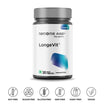
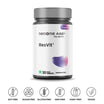
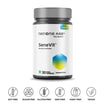
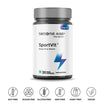
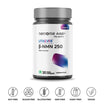
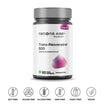
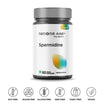
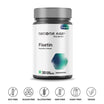
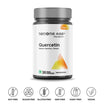
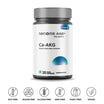
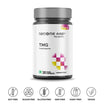
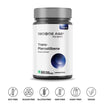
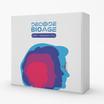
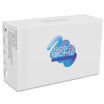
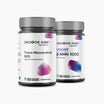
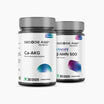
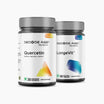
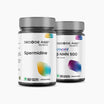
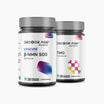
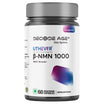
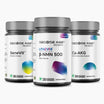
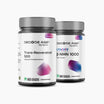
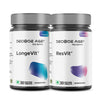
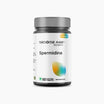
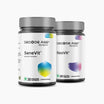
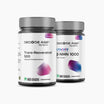
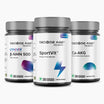
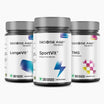
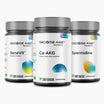
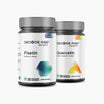
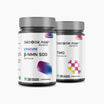
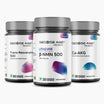
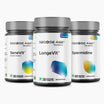
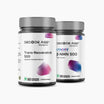



Leave a comment
This site is protected by reCAPTCHA and the Google Privacy Policy and Terms of Service apply.